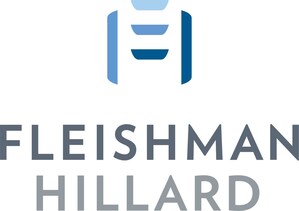Women's Reality Check: New Global Study Finds Women Making Hard Choices in an Increasingly Complex World
Sleep Over Sex and Privacy Over Sharing Are Among the Surprising Findings
ST. LOUIS, Nov. 6, 2014 /PRNewswire/ -- The sixth Women, Power & Money study, released today, finds women performing a "reality check" and making hard choices as they strive to design a more satisfying future for themselves and their families. The research, which spans four countries, finds that women crave financial security over being rich, quality of life over longevity, family closeness over satisfying her own needs, and sleep or technology over sex.
The global Women, Power & Money study was commissioned by FleishmanHillard, one of the world's most complete communications firms, and Hearst Magazines, the largest publisher of monthly magazines by paid circulation, with leading research company Ipsos MediaCT. The study is based on more than 4,300 interviews conducted in four countries: the United States, the United Kingdom, Brazil and China.
"This study helps us understand what's truly important to women, who are the CEO and CFO of the household," said Dawn Langeland, a leader of FleishmanHillard's consumer products and services sector. "Brands invest billions to forge relationships with her through advertising, in-store merchandising and social media, and it all works more powerfully when marketers show you understand the strategic choices she is making to create a life she can feel proud of."
The study finds that women's hard choices come in a world where their personal optimism is tempered by increasing uncertainty. Nearly half of the women who participated have experienced upward socioeconomic mobility in their lifetimes, compared to 10 percent who feel their standing has dropped. But looking to the future, they see significant challenges to future advancement. On average, those in the middle class feel their income would have to rise 75 percent to become upper middle class, and those in the upper middle class feel their income would have to double to become wealthy.
The study provides a reality check on the things women feel are most important in achieving a fulfilling life in a complex world, most notably:
- Financial security over wealth: Asked to define success, women most frequently cited financial security, family and happiness, while deprioritizing wealth, luxury and being a senior executive. When asked if she would prefer more money, sex or power, 80 percent prefer money. Money secures the family's future, which women prioritize over their own needs; most would rather see their kids get into a good college and get a good job rather than receive a promotion or land a good job themselves.
- Sleep over sex: While most women are satisfied with their sex lives, sleep is generally a more precious commodity. Most women would choose a night of really good sleep over a night of amazing sex in the U.S. (60 percent), UK (68 percent) and China (70 percent). In contrast, only 32 percent of Brazilian women would choose sleep over sex. Given the choice to go three months without sex or technology, women in the U.S. and UK would prefer to go without sex.
- Quality of life over longevity: Approximately 90 percent of women would rather live 10 more years in good health than 20 more years with limited mobility. Many are concerned about being a burden, with those fearing "having to be taken care of" in old age generally outnumbering those who fear "taking care of someone else" by 3-to-1.
- Aging gracefully: On average, women in the U.S., UK and Brazil believe that "old age" starts at age 70, but the study finds "old age" to be a moving target – millennials (age 18-29) think it starts at 60, while baby boomers (50-69) think it starts at 80. In China, where old age is revered, it is seen as coming earlier – 50 for women, and 60 for men.
"For many, old age feels far away, and it is actually a motivator – women want to look and feel younger at any age, which creates a huge market in each country for products and services that can help them achieve that," said Marlene Greenfield, vice president, executive director of research for Hearst Magazines.
- Increasingly, privacy over sharing: While sharing and social media use remains widespread, many women are becoming more cautious about what they share amid growing privacy and security concerns. Two-thirds of women in the U.S. and UK, and about 80 percent of women in Brazil and China, have taken specific steps to protect their privacy online. In the U.S., UK and China, about one-third of women have become more careful about what they share on social media over the past year, a figure that rises to 61 percent in Brazil.
- Values over deals: Value remains a dominant theme in women's purchasing decisions around the world, but the study finds culturally shaped values are crucial as well. The factors that drive "brand abandonment" (refusal to continue using a brand because of a company's actions) span values-based dimensions such as equality, trustworthiness and security, and differ significantly by country. In the U.S. and UK, women's top marketplace deal-breaker is learning that a company discriminates against women. In China, women are most likely to discontinue brand use if the company is on the brink of bankruptcy. In Brazil, a company that has been hacked and had credit card information compromised is most likely to lose customers.
- Brand variety over loyalty: While interest in brands is strong, so is openness to new brands. Across all four countries and both genders, a majority describe themselves as interested in a variety of brands, as opposed to being loyal to certain brands, in virtually every category examined.
- Marketplace simplicity over complexity: More than 40 percent of women in each country, and more than 80 percent in China, agree: "I'm overwhelmed by all the product choices available these days." This "option overwhelm" is particularly prevalent in categories related to financial services, technology and beauty.
A white paper summarizing the 2014 Women, Power & Money study is available, offering more details on the complete study.
About the Study
Wave Six of Women, Power & Money was conducted by Ipsos in August 2014. More than 4,300 interviews were conducted online among women and men in the United States, the United Kingdom, Brazil and China. All participants were aged 21-70. In the United States, survey participants had at least $25,000 in annual household income, and similar income thresholds were established in each country. Data were weighted to demographic targets in each country to ensure that the results were representative.
About Hearst Magazines
Hearst Magazines is a unit of Hearst Corporation (www.hearst.com), one of the nation's largest diversified media and information companies. With 21 titles in the U.S., Hearst is the leading publisher of monthly magazines in terms of total paid circulation (AAM 1H 2014) and reaches 83 million adults (Spring 2014 MRI gfk). In addition, the company publishes nearly 300 editions around the world. Hearst Magazines Digital Media, dedicated to creating and implementing Hearst Magazines' digital strategy, manages 18 websites for brands such as Cosmopolitan, Popular Mechanics, ELLE, ELLE DECOR, Esquire, Good Housekeeping, Marie Claire and Seventeen, as well as digital-only sites such as Delish.com. Hearst Magazines has published more than 150 apps and digital editions for the iOS and Android platforms. The company also includes iCrossing, a global digital marketing agency.
About Ipsos MediaCT
Ipsos MediaCT is the market research specialization within Ipsos built to reach, engage and more effectively understand today's digitally-driven consumer in the fast moving media, content and technology space. Ipsos works with leading companies in technology, entertainment and all sectors of media – TV, online, print, mobile, outdoor, radio – helping owners and advertisers to better understand different audiences, the content they consume, the channels they use to consume it and the technology they use to discover, talk about and access this content. Ipsos MediaCT is a specialist division within Ipsos, one of the world's largest market research agencies. Ipsos has offices in 86 countries, generating global revenues of €1.712 billion ($2.274 B) in 2013. Alongside media, content & technology, Ipsos has specialist practices in advertising, loyalty, marketing and public opinion research. Visit www.ipsos-na.com/media to learn more.
About FleishmanHillard
FleishmanHillard is the world's most complete global communications firm, specializing in public relations, public affairs, marketing, paid media, and transmedia and social content. FleishmanHillard delivers on The Power of True, reflecting the firm's high values, and unique ability to guide clients through a world demanding unprecedented authenticity and transparency. FleishmanHillard was named PRWeek's 2014 Global Agency of the Year, "Standout Agency" on Advertising Age's 2013 A-List; NAFE's "Top 50 Companies for Executive Women" for 2010-2014; and among PRWeek's 2013 "Best Places to Work." The firm's award-winning work is widely heralded, including at the Cannes International Festival of Creativity. FleishmanHillard is part of the DAS Group of Companies, a division of Omnicom Group Inc., and has more than 85 offices in 31 countries, plus affiliates in 42 countries. Visit us at www.fleishmanhillard.com.
About The DAS Group of Companies
The DAS Group of Companies, a division of Omnicom Group Inc. (NYSE: OMC) (www.omnicomgroup.com), is a global group of marketing services companies. DAS includes over 200 companies in the following marketing disciplines: specialty, PR, healthcare, CRM, events, promotional marketing, branding and research. Operating through a combination of networks and regional organizations, DAS serves international, regional, national and local clients through more than 700 offices in 71 countries.
SOURCE FleishmanHillard
Related Links
WANT YOUR COMPANY'S NEWS FEATURED ON PRNEWSWIRE.COM?
Newsrooms &
Influencers
Digital Media
Outlets
Journalists
Opted In





Share this article